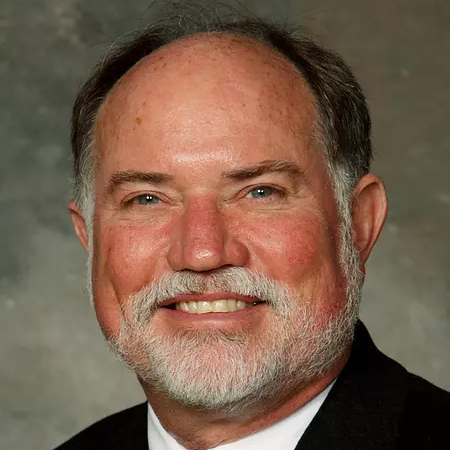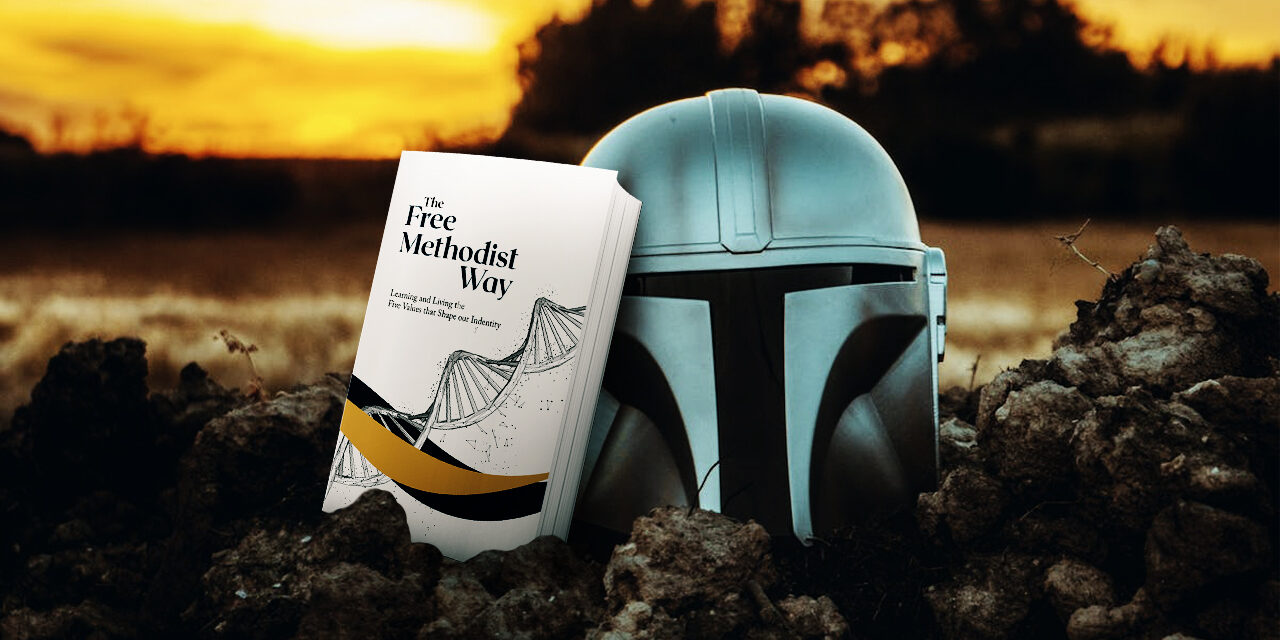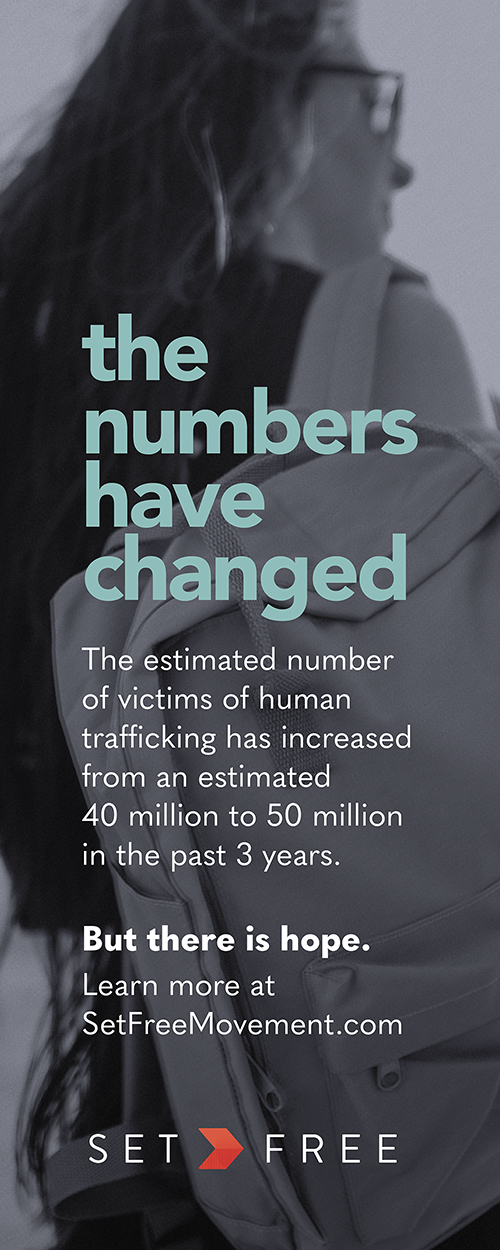
Denny Wayman
Denny Wayman, D.Min., is a member of the Study Commission on Doctrine and the moderator of Free Methodist Conversations. He served 40 years as the lead pastor of the Free Methodist Church of Santa Barbara and 10 years on the superintendent team (eight years as lead superintendent) of the Free Methodist Church in Southern California. He is the author of “Healthy Biblical Communities” and the discipleship trilogy “Discipleship Ecosystem,” “Toxic Discipleship” and “Rootbound.” He is married to Cheryl, a licensed marriage and family therapist.
By Denny Wayman
While many Free Methodists celebrate an awakening that’s spread from Asbury University to other campuses, “The Mandalorian” fans are celebrating the return this month of new episodes chronicling a bounty hunter on the outer reaches of a galaxy far, far away. It may seem trivial to discuss a Disney+ show amid the ignition of a Spirit-fueled movement, but sometimes even our entertainment reflects our spiritual longings and the need to follow a better Way.
In a convergence that can only be described as synergistic, the newly elected bishops of the Free Methodist Church USA began in 2019 to create a description of denominational values called The Way. In the same time period (November 2019), Disney imagineers presented an interstellar religion followed by the Mandalorians who also call their faith The Way. Recognizing the biblical source of this title and knowing that such parallelism is indicative of the need for special attention, as both provide insight into the other, this short exploration is provided with respect for both and with obvious tongue-in-cheek.
The Way Emerges
A long time ago, the desert planet of Mandalore birthed a clan-based faith of multiple species bound together by creed, language and code. Adherence to the creed is best expressed by Din Djarin: “There is only one way: the Way of the Mandalore.” Enforcing the creed in the centuries that followed, the liturgical device — used in the informal greeting and enculturation — posited an action. The leader said, “This is the Way,” and the members affirmed in response: “This is the Way.”
Similarly, in the previous millennium under an apple tree in the state of New York, there was birthed a new denomination free from the ostentation of religion and dedicated to the equality of all people bound together by a common respect, theology and life. Founded upon the words of Jesus two millennia earlier, these foundling people accepted that “Jesus is the Way” and have come to express it in the new millennium as “The Free Methodist Way.”
Clear Values
In contrasting and comparing the two religions in their beliefs and practices, both provide a clear set of values. These values are going to be accepted without critique while at the same time delineating differences.
The Mandalorians have six tenets while the Free Methodists have five. However, the core difference starts with the contrast of the Mandalorian three-faceted “Code of Honor” and the Free Methodist similarly three-faceted “Mission and Vision Statements” (from the Book of Discipline).
The Mandalorian Code of Honor says: “Strength is life, for the strong have the right to rule. Honor is life, for with no honor one may as well be dead. Death is life, one should die as they have lived.”
The Free Methodist Mission Statement is: “To love God, love people, and make disciples.” The Free Methodist Vision Statement is: “To bring wholeness to the world through healthy biblical communities of holy people multiplying disciples, leaders, groups, and churches.”
To contrast the two religions, the first facet is opposite. The Mandalorian Code values strength, which is seen as the right to rule others. The FM mission values love, which is the key to loving God and making disciples.
The second facet contrasts life and death. The FM vision is focused on wholeness and healthy biblical community. The Mandalorian Code is focused on the necessity of honor without which death is preferred.
The final difference between the two is the Mandalorian Code values death while the FM vision multiplies life through creating disciples, leaders, groups and churches.
Starting with this diametrically opposed foundation, it is no surprise that the six tenets of the Mandalorian Way also demonstrate the difference with the five values of The Free Methodist Way.
The six tenets of the Mandalorians’ Resol’nare are:
1. Raising children as Mandalorians.
2. Wearing the Mandalorian armor.
3. Mastering self-defense.
4. Devoting oneself to the clan’s welfare.
5. Speaking the Mandalorian language.
6. Answering the Mandalorian leader’s call to action.
Living the Values
As can be seen, these are open to interpretation as to the fulfillment of such principles. For example, the ancient and virtually invincible armor evolves into the requirement that a Mandalorian never take off his or her helmet. This legalistic interpretation causes an isolation that makes community difficult. Thus devoting oneself to the clan’s welfare makes it less an act of loving devotion and more an institutional or organizational obligation. This also gives insight into what is meant by raising children as Mandalorians. If the child, or adopted foundling, never sees the parents’ faces, then such a growing person can only be fixated on the metallic armor that separates them and identify more with the persona than the parental concern.
Similar to this difficulty is the value of self-defense. If the focus of the Warrior Way of The Way of the Mandalorians is to protect oneself, then the call of one’s leader into battle can easily be at odds with such a personal decision. To resolve such a conflict within these values, the Mandalorian either obediently complies or, perhaps, wisely denies in order to protect their own life.
In contrast with these conflicting principles that are meant to define how to live out The Way of the Mandalorians, The Free Methodist Way has interactive and mutually supportive values based on God’s work in the individual and in the world. These five are:
1. Life-Giving Holiness: the fruit of full surrender to the loving reign of God.
2. Love-Driven Justice: valuing the image of God in all people, reconciling all things.
3. Christ-Compelled Multiplication: redemptive movement toward a growing fullness of Christ globally and individually.
4. Cross-Cultural Collaboration: people from every nation, culture and ethnicity working together in God’s redemptive, reconciling reign.
5. God-Given Revelation: God’s Word as authority in faith and practice.
A simple comparison of actions contrasting these two Ways provides even more obvious differences. The first is the basis of authority. For the Mandalorian there is an oral tradition that is passed down by didactic moments in which the beliefs are affirmed: “This is the Way.” This passing down from one generation to another is the first of the six tenets and demonstrates the faith to be only as strong as its tradition to raise up children within it. This is affirmed by the Mandalorian leader Satine Kryze: “We are a people of tradition.” This tradition, creating a pyramid of power in which there is one ruler at the top with “protectors” enforcing their rule, requires accountability to the leader as seen by the sixth tenet.
_
“The Way of the Free Methodists is to bring about a just world with the fullness of the kingdom of God.”
_m `
The Free Methodist Way values first the foundation that a person surrender not to another person but to God directly. This surrender not only allows a person being created in God’s image to grow into His likeness, but it also allows each person to find love in both its divine and its human forms. Rather than competing to the death in order to gain power, as the tradition of the Mandalorian Way requires, reconciliation between all persons of all nations in a collaborative unity with God as the head is The Way of the Free Methodists.
There is a similarity between both Ways when approaching the reality of injustice. Although the ancient Mandalorians warred against the Jedi and their religious appropriation of The Force, in this age there are virtually no Mandalorians left and those that are fight against the drug cartel and species injustice. The desire of such action seems to bring about a holistic justice in the galaxy. Similarly, The Way of the Free Methodists is to bring about a just world with the fullness of the kingdom of God becoming the reality. However, this justice is not accomplished by the use of weapons as is The Way of the Mandalorians, but by a Love-Driven Justice that recognizes the power of a loving God at work to bring about His infinite fullness.
Another similarity seen in both Ways is the unity across cultures or species. Any being of any world can become a Mandalorian, if they choose to speak the Mandalorian language and follow the other tenets. This is also true of The Way of the Free Methodists. Acknowledging that the kingdom of God is comprised by people of every language, tribe, people and nation, Free Methodists invite all who join in the surrender of their lives to God to belong. This belonging is not based on specific legalistic requirements as is The Way of the Mandalorian, but on the direct connection to God and a love for others creating a bond of loving reconciliation, collaboration and healthy, just community.
Though there are other similarities and differences, the prophets of both Ways are clear in their call to walk in The Way however different those Ways might be. Free Methodists look not only to tradition and personal experience, but also to a prophet from several millennia ago, Isaiah, who said, “Whether you turn to the right or to the left, your ears will hear a voice behind you saying, ‘This is the way; walk in it.’” In final analysis, it is the presence of The Voice that makes The Way of the Free Methodists distinct from that of the Mandalorians and any other religious creation.
+

Denny Wayman
Denny Wayman, D.Min., is a member of the Study Commission on Doctrine and the moderator of Free Methodist Conversations. He served 40 years as the lead pastor of the Free Methodist Church of Santa Barbara and 10 years on the superintendent team (eight years as lead superintendent) of the Free Methodist Church in Southern California. He is the author of “Healthy Biblical Communities” and the discipleship trilogy “Discipleship Ecosystem,” “Toxic Discipleship” and “Rootbound.” He is married to Cheryl, a licensed marriage and family therapist.









